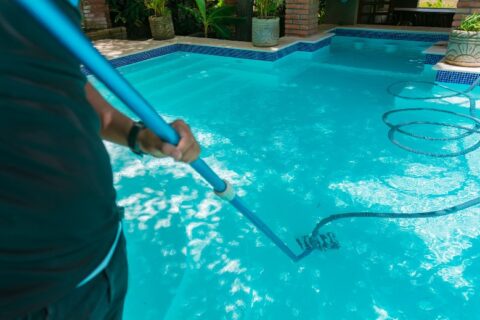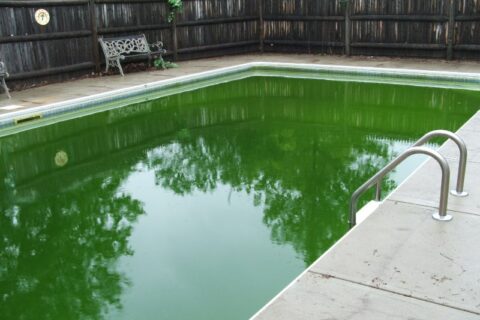Keeping Your Swimming Pool Clean During the COVID-19 Pandemic
As governments, businesses, schools, and other organizations take steps to curb the spread of COVID-19, you may find that many of your favorite recreational activities are unavailable this summer. For instance, most public swimming pools have limited hours of operation or have opted to remain closed.
This decision largely comes from social distancing concerns, not an increased risk of the coronavirus spreading through water. According to the Centers for Disease Control and Prevention (CDC), “there is no evidence that the virus that causes COVID-19 can be spread to people through the water in pools, hot tubs, or water playgrounds. Additionally, proper operation of these aquatic venues and disinfection of the water (with chlorine or bromine) should inactivate the virus.”
If you have a backyard swimming pool, you’re in luck! By following recommended pool cleaning and maintenance protocols, you can sustain a safe, healthy option for recreating with your family during the COVID-19 pandemic.
Clean Your Pool with the Proper Chemicals
Whether during a pandemic or not, pool chemicals are critical for sanitizing the water, killing algae, balancing the pH level, and tackling any films or odors that develop. Here are the chemicals designed to kill bacteria, viruses, and other microorganisms in swimming pools:
- Chlorine is the most popular pool sanitizing chemical because it’s effective and affordable. Different types of chlorine are available, including dichloride, trichloride, and multi-action tablets.
- Bromine is a popular alternative. It doesn’t break down as quickly as chlorine, so it remains active longer.
- Biguanide is a chlorine-free pool sanitizing option similar to hydrogen peroxide that was originally developed as a surgical disinfectant. It’s gentler on your skin, hair, and eyes and doesn’t degrade in sunlight.
- Minerals such as silver (a bactericide) and copper (an algaecide) can be used to sanitize pool water.
Avoid Spreading COVID-19 in Swimming Areas
Although properly sanitized pool water isn’t an avenue for spreading the coronavirus, it’s still advisable to follow these tips from the CDC to promote a safe and healthy swimming area:
- Wash your hands regularly when hanging out by the pool, and cover your mouth when you cough or sneeze.
- Regularly clean and disinfect unsubmerged surfaces around the pool to kill any lingering viruses.
- Use caution when inviting friends over to swim. Stay at least six feet away from anyone who doesn’t live in your household and wear face coverings when not in the water.
- Be selective about who swims in your pool. Don’t invite anyone over who has symptoms of COVID-19, has tested positive for COVID-19, or has been exposed to someone with COVID-19 in the last 14 days.
Millennium Pool Service offers chemical testing and balancing as part of our pool maintenance package. Please call 703.939.5062 to request services in DC or Virginia, or call 301.591.3750 for services in Maryland. You can also contact us online. Rest assured that we’re taking all necessary precautions to promote health and safety when visiting our customers’ homes during the COVID-19 pandemic.


